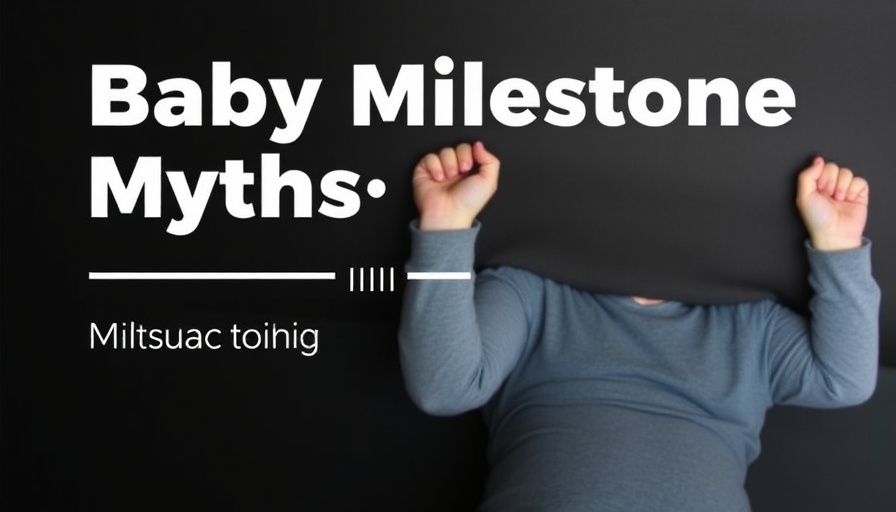
The Truth Behind Infant Milestone Tracking
In today's society, new parents are inundated with recommendations and guidelines regarding their baby's development. From milestone tracking apps to well-meaning advice from family and friends, the pressure can feel overwhelming. Dr. Amina Ahmed, a pediatrician from Stanford Medicine Children’s Health, affirms, “As a pediatrician, I always want parents to know that development isn’t a race.” Each baby is unique, and the timeline for reaching developmental milestones can vary significantly from one child to another.
Separating Fact from Fiction
Many parents worry when their child doesn't meet classic milestones, such as crawling by 6 months or walking by their first birthday. However, as research shows, only about 25 percent of children walk by 12 months, and many do not crawl at all. Instead of stressing about these markers, parents should focus on the smaller signs of progress—such as when their baby shows interest in movement or can push up on their arms during tummy time.
When to Seek Pediatric Advice
It's essential for parents to know what signs necessitate a conversation with a pediatrician. Dr. Ahmed recommends checking in if a baby shows no interest in movement by 9-10 months. More importantly, parents should be attentive to their child's individual progression rather than feeling pressure to meet societal norms. Understanding that a wide variation in timing is typical can alleviate some of the anxiety surrounding these developmental stages.
Empowerment Through Knowledge
Through education and informed guidance, parents can empower themselves to navigate the often overwhelming first year of their child's life. Engaging with trusted resources and discussing any concerns with healthcare professionals can foster a healthier, more supportive environment for both parent and child.
In conclusion, it’s important to remember that every child is different. While staying informed is beneficial, parents should focus on encouraging their baby's unique milestones without feeling the burden of comparison or unrealistic expectations.
 Add Row
Add Row  Add
Add 



Write A Comment